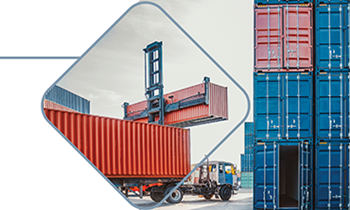<p>By: Doug Baker, Vice President, Industry Relations, FMI</p><p><img src="https://www.fmi.org/images/default-source/homepage-curation-tiles/supply-chain-form-2023_sm.tmb-large-350-.png?sfvrsn=58cf8e9a_1" style="float:right;margin:10px;" alt="supply chain form" class="-align-right" sf-size="110085" />As the food industry emerges from post-COVID-19 pandemic supply chain disruptions there is much work that needs to be done to restore supply chain equilibrium. First and foremost, companies and trading partners must manage complexity and lead change.
Supply chain transformation can be accelerated through breakthrough thinking, innovation and identifying new ways of working together. Going back to the pre-pandemic playbook is not an effective means to address today’s challenges and tomorrow’s
opportunities.<b><u></u></b><br /></p><p>Today, there are a whole host of new challenges confronting the food retail and consumer products industry. Inflationary pressures continue to place cost pressures on business operations. Labor and workforce challenges will require companies to re-think
business operations and the role that technology will play. Consumer confidence and household spending are strained. On the horizon, by all accounts, a recession is looming which could alter the trajectory of the growth momentum that was realized
during the pandemic era. <br /></p><p>The industry continues to experience a supply chain hangover in a never normal environment that continues to challenge the norms that used to work in the past. To address and solve these challenges FMI is convening industry leaders and supply chain professionals
in Addison, Texas on September 26-28 at the second annual <a href="https://www.fmi.org/supply-chain-forum">FMI Supply Chain Forum</a>.<br /></p><p>The program will provide breakthrough thinking, actionable insights, practical tools, innovative solutions, and peer-to peer networking to navigate through on-going disruptions, volatility, and supply chain strategy transformation opportunities. The event
will be a highly interactive experience. The focus of the forum will be to address and solve issues that are important and urgent today while looking towards new innovations that will impact future supply chain performance. Priority focus areas that
will be addressed in a series of general and breakout sessions as well as hands on workshops include:<br /></p><ul><li>Strategic Supply Chain Management.</li><li>Collaborative Transportation.</li><li>Labor, Workforce and Talent.</li><li>Transportation and Warehouse Performance.</li><li>Supply Chain Scorecarding.</li><li>Product Allocation Strategy.</li><li>Technology Innovation and Transformation.</li></ul><p>Participants should expect to:<br /></p><ul><li>Explore big ideas that deliver actionable insights.</li><li>Build relationships by engaging in open and honest conversations with industry peers.</li><li>Participate in problem solving workshops designed to identify root causes and solutions impacting the end-to-end supply chain.</li><li>Address immediate needs and innovations to restore supply chain equilibrium and product availability.</li><li>Develop frameworks and roadmaps to unlock efficiencies, reduce cost, enable growth, and build long-term capacity.<br /></li></ul><p>The event is designed to bring together supply chain professionals in transportation, logistics, warehousing, and manufacturing as well as their counterparts on the demand side; retail and wholesale merchandising and CPG sales functions that play an integral
role in driving sales and profitability. <br /></p><p>We hope to see you there!<br /></p><p><a href="https://www.fmi.org/forms/RedirectForm/?dest=https%3A%2F%2Fwww.fmi.org%2Fsupply-chain-forum&utm_campaign=supplychainforum23&utm_source=blog_SCF23_May2023&utm_medium=blog" class="button">Register today</a></p>
[#item_full_content]




